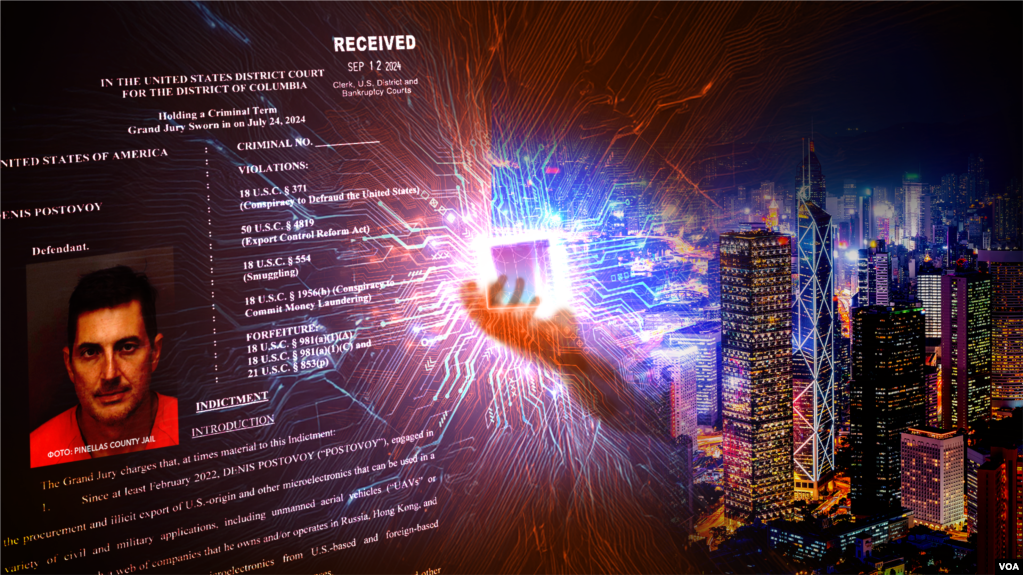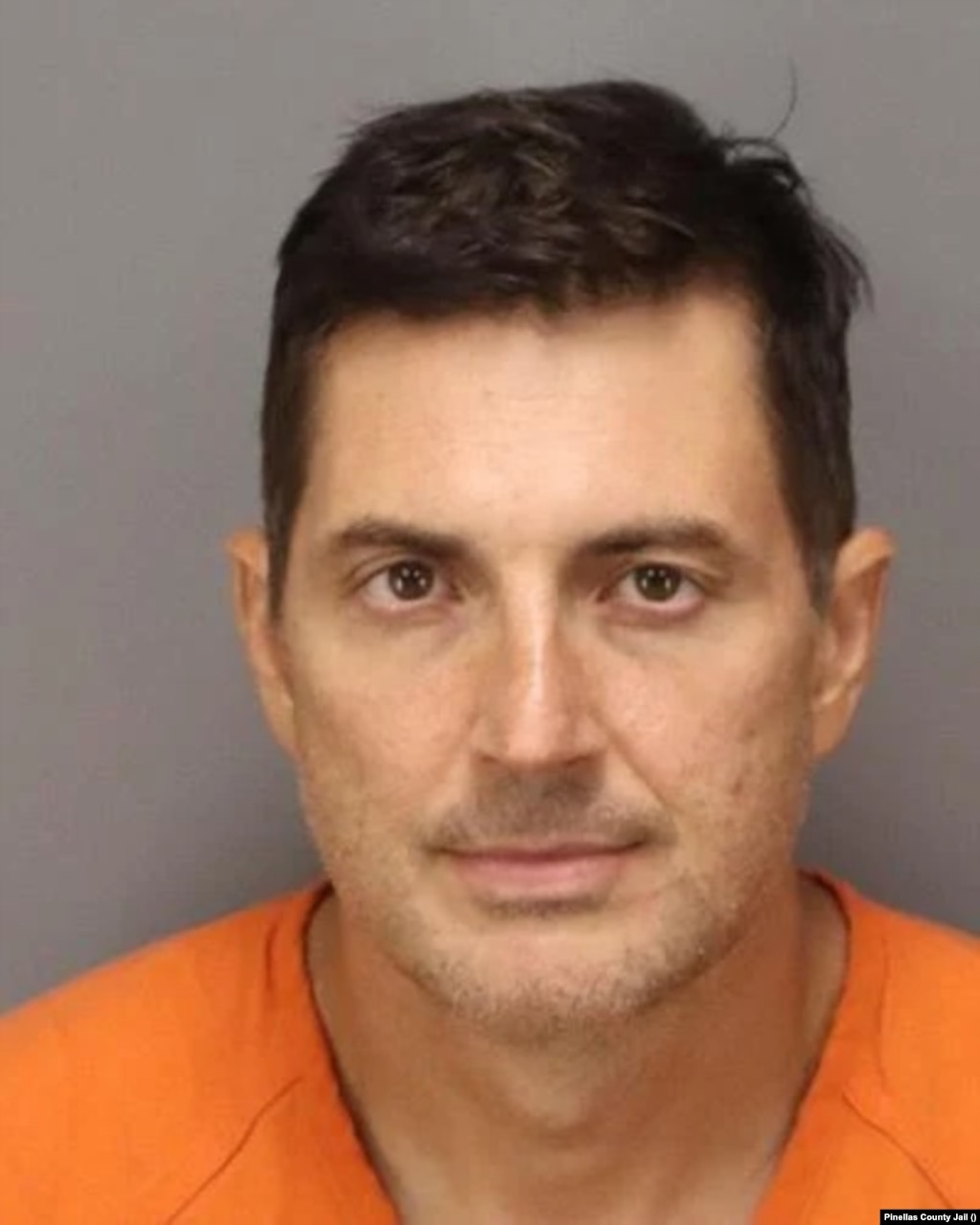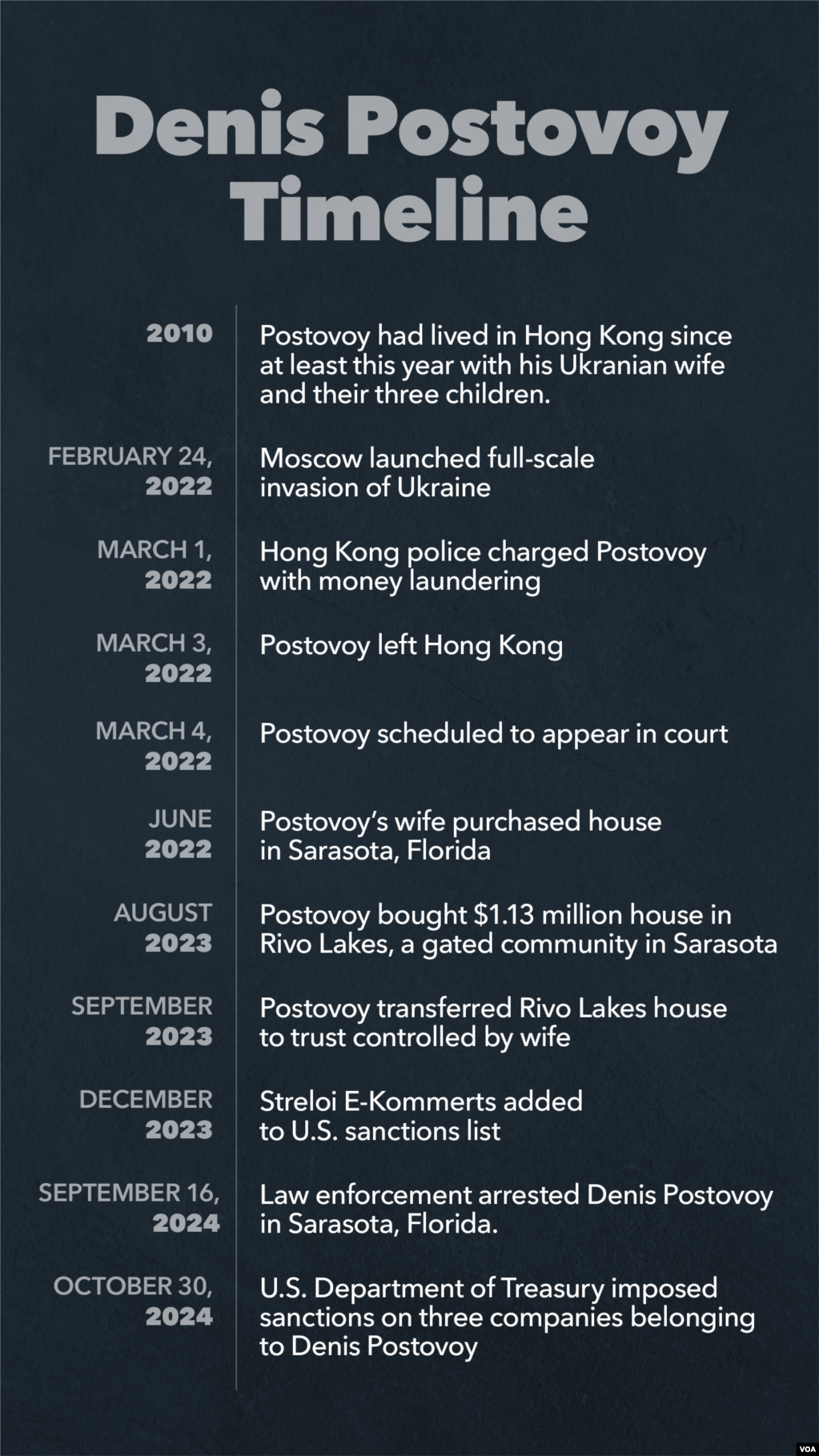
When the U.S. Department of Treasury imposed sanctions on three companies belonging to Denis Postovoy on Wednesday, it was yet another move to break up what U.S. authorities say was an international scheme to violate sanctions.
A month earlier, on September 16, law enforcement officials arrested the 44-year-old Russian national in Sarasota, Florida.
He was charged with conspiring to violate sanctions on Russia, commit smuggling, commit money laundering and defraud the United States.
According to the indictment, Postovoy used an international network of companies to export dual-use microelectronic components from the United States to Russia –– potentially spare parts for military drones used in the Kremlin’s war against Ukraine.

Denis Postovoy
Postovoy is not the first Russian charged with violating U.S. export controls. But he is one of the few who allegedly did it from inside the United States.
Using court documents and open-source information, VOA pieced together Postovoy’s history, revealing a story involving international trade, criminal charges in two countries, a U.S. startup and Florida real estate.
Postovoy pleaded not guilty to all the charges. If convicted, he could face decades in prison.
Postovoy is in pretrial detention and could not be reached for comment. His lawyer did not respond to a VOA request for comment. When VOA reached Postovoy’s wife by phone, she hung up. She did not respond to questions sent to her on the WhatsApp messenger app.
According to the latest court filings, Postovoy’s case was transferred to the U.S. District Court in Washington.
American charges
After Moscow launched its full-scale invasion of Ukraine on Feb. 24, 2022, the U.S. significantly expanded restrictions on the export of microelectronics to Russia.

Denis Postovoy timeline
The Department of Justice has accused Postovoy and several unnamed co-conspirators of using a network of companies under their control in Hong Kong, Switzerland and Russia to violate those sanctions.
It claims Postovoy misrepresented the buyers and destinations of the goods, routing them through Hong Kong, Switzerland, Turkey and Estonia.
“As alleged, he lied about the final destination for the technology he was shipping and used intermediary destinations to mask this illegal activity,” U.S. Attorney Matthew M. Graves stated in a press release. “Fortunately, our skilled law enforcement partners at HSI [Homeland Security Investigations] and our dedicated attorneys unraveled the plot.”
The prosecution states that Postovoy’s clients included the Russian company Streloi Ekommerts and other unnamed firms. According to the indictment, the contract with Streloi was completed before the company was added to the U.S. sanctions list in December 2023.
An investigation by Radio Free Europe/Radio Liberty found that Streloi actively helps Russia circumvent Western export restrictions.
Another recipient of the microelectronics, according to an invoice included in the case materials, was the Russian technology company Radius Avtomatika.
Neither company responded to emailed questions from VOA.
It is unclear whether the microelectronics Postovoy allegedly exported were ultimately used in drones, but one court document states that the people he contacted were members of Russia’s military-industrial complex.
Hong Kong story
Originally from Novosibirsk, Russia, Postovoy had lived in Hong Kong since at least 2010 with his wife — a Ukrainian citizen from Crimea — and their three children.
Shipping records indicate his companies were involved in exporting goods from Hong Kong, a special administrative region of China, to Russia. Prosecutors allege that after the U.S. expanded its sanctions, some of this activity became illegal.
When the DOJ announced Postovoy’s arrest, it also listed the names of his companies that it said were involved in the alleged scheme. Aside from the Russian-registered firm Vektor Group, all the others were in Hong Kong: Jove HK Limited, JST Group Hong Kong and WowCube HK Limited.
All are now under U.S. sanctions, except for WowCube HK Limited.
Its appearance in the indictment provoked a rapid response from Cubios, another company previously associated with Postovoy. It produces the WOWCube gaming console, wich looks like a Rubik’s cube with multiple screens.
